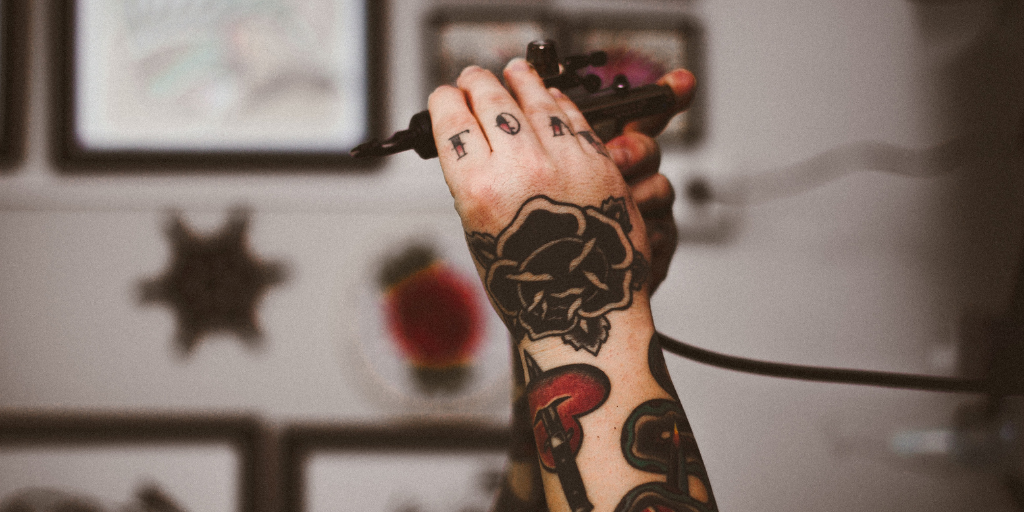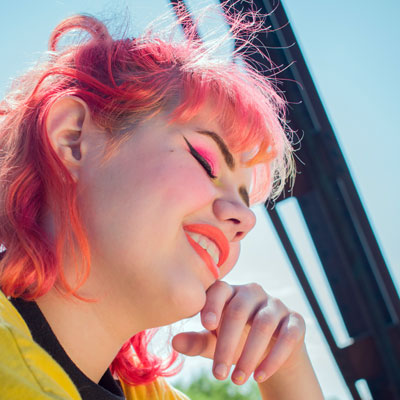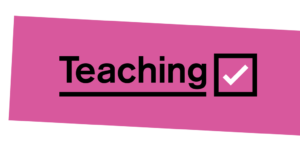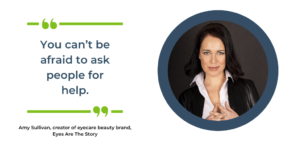
How To Become a Tattoo Artist: careers guide
If you’re a highly creative person with a love of both art and people, becoming a Tattoo Artist gives you a canvas to build a unique and rewarding career.
Getting into Tattoo Artist careers
A Tattoo Artist, also known as a Tattooist, is an artist who designs tattoos and applies them to customers’ bodies. Tattoo Artists can work from existing designs, or create their own original art to customer specifications.
How much money can you earn as a Tattoo Artist?
These LMI Job Trends give you a sneak peek of how much you could earn starting out for this career, and how much your salary could grow with experience.
Average salary for Tattoo Artist jobs
Recent labour market information says you can earn on average £18,720 a year as a Tattoo Artist in the UK.
Your starting salary can vary because of factors like level of experience, training, location or the size of the company. Your salary as a Tattoo Artist will increase over time as you build skills, knowledge, and experience.
Creative Career FAQs & Insights

Is there something you’d like to know about creative careers?
What skills do you need?
Useful skills to put in your CV:
- Artistic skills. You’ll need to be talented, creative, and continually working to develop your craft. A portfolio of work is essential.
- People skills. You’ll spend many hours with your customers as you work on their tattoos and you will need to be friendly, personable, and know how to put people at ease.
- Attention to detail. Tattoos are for life, so they must be perfect by the time they’re inked into the customer’s skin.
- Patience. A tattoo is a slow, painstaking process.
- Great manual dexterity and hand-eye coordination.
- Organisation and time management skills.
- First aid training is advantageous as, even with all reasonable precautions taken, tattooing is physically intense and customers can sometimes have unexpected reactions (such as bleeding or fainting.)
You do not necessarily have to have tattoos yourself in order to become a Tattoo Artist, though most artists have at least one or two. If you do want your own ink (once you’re 18 or over), the process of choosing, designing, and getting your tattoo(s) can teach you a huge amount about the process.
Top Skills-boosting Tips
Study the art of many different tattooists. Follow them on social media, follow their YouTube channels, and check out their website and galleries of work. Try to articulate what it is that you like (or dislike) about each tattooist’s style. And if you meet someone with ink you love, ask them who their artist was.
You’ll develop your own style as you learn, and influence from artists you admire can help.
How Do You Get These Skills?
Vocational qualifications and work experience will help you build these skills over time.

Build Your Skills With the FREE Young Professional Programme
What Qualifications & Training Do You Need For Tattoo Artist Careers?
Apprenticeships
An apprenticeship is a scheme where you train while earning a starting salary. With an apprenticeship (or advanced apprenticeship) you’ll have a paid job with an employer that includes structured training and learning.
It’s important to note that there is currently no accredited tattoo apprenticeship qualification in the UK.
Employers may offer apprenticeships, but the structure and quality of apprenticeships can vary as they will likely be created by the employer themselves. It is important to do your research and look for quality training when searching for tattoo artist apprenticeships.
Short Courses
Organisations such as the Official Tattoo Academy and Tattoo and Piercing Academy offer short, intensive courses for aspiring Tattoo Artists.
The advantage of these courses is that you can gain a lot of experience and knowledge very quickly. On a reputable course, you’ll also receive a certificate that is recognised in the UK and throughout Europe.
The downside is that these courses can be expensive, costing up to £3000 at full price.
T-Levels
T-Levels are a choice for learners after completing Level 2 qualifications like GCSEs.
BTECs
As an alternative to GCSEs and A-Levels, you can do BTECs from the age of 16.
There are several BTEC options that can be a good springboard into becoming a tattoo artist. You might wish to consider:
- Level 2 Certificate in Art and Design
- Level 2 Diploma in Art and Design Skills
- Extended Diploma in Art and Design
- Level 4 HNC Art and Design (Graphic Design) Tattoo Illustration
- Level 5 HND Art and Design (Graphic Design) Tattoo Illustration
You’ll normally need 2 or more GCSEs at grades 9-3 (A*-D) or equivalent for a Level 2 course. If your qualifications are lower than this, you’ll most likely start on a Level 1 course. If you want to do a Level 4 or 5 course, you’ll usually need A-Levels or a completed Level 3 course first.
University degrees and graduates
You do not need to go to university to work as a Tattoo Artist. However, if higher education is part of your plan, a degree in a relevant subject can help your application stand out.
Degree subjects such as Art, Art and Design, Fine Art, or Painting and Drawing are all great choices for this career path.
UCAS has more information on degree courses and entry requirements.
A-Levels
If you are going on to A-Levels after your GCSEs, creative subjects such as Art or Art & Design will look great on your CV.
Career Progression
As you gain experience as a tattooist, your reputation will grow and you may gain a base of loyal customers who return to you again and again. Developing your own unique style is key here, and being active on social media platforms such as Instagram can help to showcase your work to more people.
You might choose to work at a specific tattoo studio, or freelance (the advantage of freelancing is that you can charge a higher hourly rate, though the work is less secure).
You could even set up your own tattoo shop eventually.
What Work Experience Do You Need For Tattoo Artist Jobs?
Work Experience Tips
It can be difficult to gain relevant work experience as a Tattoo Artist as most studios will be unable to offer work experience to anyone under 18. However, any experience that involves working directly with customers will serve you well, because tattooing is a people business first and foremost. Work experience in any art or design based field will also be a great experience to help prepare you for becoming a Tattoo Artist. If you’re still at school, speak to someone in the Art department for help with finding appropriate work experience.
You’ll need to demonstrate excellent people skills, focus and attention to detail, and a genuine passion for making customers happy.
Examples of relevant work experience include:
- Work shadowing (even if it’s just for a day)
- Work placements in a company
- Work experience placements on a college or university course
Volunteering Tips
You can build your skills in your own time to enhance your application. The most important thing is to make art as often as you can, as you’ll build your skills every time you draw, paint, or create something.
If you’re involved in any clubs or extracurricular activities, you could volunteer to create artwork such as logos, promotional materials, event posters or programmes, and so on. This will give you some real- world work to add to your portfolio. You could also approach local charities or not-for-profit organisations and offer your time and skills on a voluntary basis as you build your portfolio.
Online materials such as articles and videos can also help you learn the basics of tattooing. Places like Tattooing 101, YouTube channels by tattooing professionals, and Udemy have numerous free or affordable resources you can tap into.
What Does A Tattoo Artist Do?
A Tattoo Artist, or Tattooist, applies tattoos to customers’ bodies. This will include popular standard designs (sometimes called flash tattoos), working from customers’ designs or photographs, and creating completely original and bespoke work to customer specifications.
Example daily job responsibilities:
- Opening the tattoo shop in the morning and getting it ready for the day’s customers
- Cleaning and sterilising tattooing equipment
- Preparing the workspace ahead of appointments
- Welcoming customers to their appointments and putting them at ease
- Booking appointments
- Meeting clients for consultations about their tattoos
- Fielding questions and queries in person, on the phone, and online
- Applying flash tattoos
- Designing and applying bespoke and custom tattoos
- Promoting your work, for example by using social media
- Educating customers on tattoo aftercare
- Experimenting with thinking up and drawing new designs
- Keeping up to date with industry news and trends
- Closing up the shop at the end of the working day
How To Find Tattoo Artist Jobs: Next Steps
Once you have completed your Tattoo Artist training, you’ll need to apply for a licence from your local council before you can work independently. When you are trained and licensed, search on jobs boards for early career roles and opportunities with these words in the title:
- Tattooist
- Tattoo Artist
- Junior Tattoo Artist
You can also apply directly to tattoo studios in your area. Expect to be asked for a portfolio of work before you are considered for a job. This allows your prospective employer to assess the quality of your work as well as how well your style aligns with the studio’s brand.
Take a look at our database of local opportunities to see if there are any relevant jobs, work placements, or careers events and workshops to help you get started.
Get Into Creative Careers With Youth-Friendly Employers
These employers and organisations are here to help. They care about your potential and desire to learn, not just your qualifications and experience. They may be able to offer traineeships, apprenticeships, graduate schemes, first jobs, careers advice, wellbeing support and much more.
Creative Career Tips & Opportunities
Creative and Design Career Guides
View job descriptions with average UK salary, useful qualifications and a variety of routes into this career.
See All Our Youth-Friendly Employers

























YES! I Want More Free Careers Help...
So what are you waiting for? Grab your future.




























